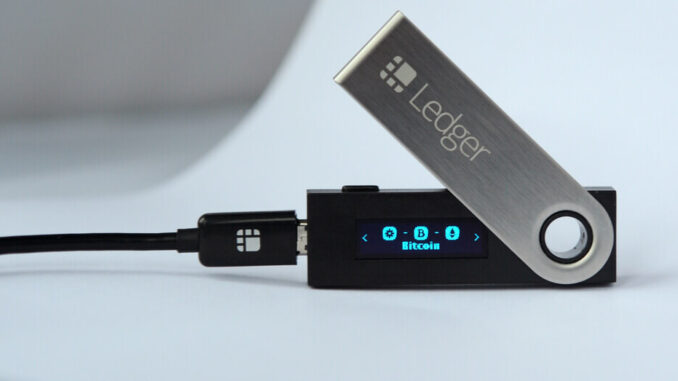
Ledger has launched an offline Recovery Key for Flex and Stax wallets.
The recovery key requires no cloud, ID, or internet to recover wallet access.
Recovery Key complements 24-word phrases and Ledger Recover rather than replacing them.
Ledger, a renowned manufacturer of cryptocurrency hardware wallets, has officially unveiled a new offline physical backup solution known as the Ledger Recovery Key.
The innovative physical key is designed specifically for Ledger’s newer devices, Ledger Flex and Ledger Stax, ushering in a new chapter of self-custody that emphasizes user control, simplicity, and security.
The release of the Recovery Key comes on the heels of Ledger surpassing 7.5 million devices sold globally, propelled in part by the launch of Flex and Stax earlier in 2024.
With the growing importance of secure asset recovery in crypto, Ledger is responding to rising demand by offering more flexible, offline options for users who prefer to avoid cloud-based solutions.
A physical spare key for Ledger wallets
The Ledger Recovery Key serves as a physical backup that enables users to restore access to their wallets simply by tapping a smart card and entering a PIN.
This new tool does not replace the traditional 24-word seed phrase but works as a complementary solution that can exist alongside it or even alongside the company’s existing cloud-based service, Ledger Recover.
Critically, the Recovery Key remains entirely offline at all times, using secure NFC (Near Field Communication) channels to connect directly with compatible devices like Ledger Flex and Stax.
The key uses the same Secure Element technology found in Ledger’s wallets, ensuring that the recovery experience meets the same high standards for cryptographic security.
No cloud, no ID, no middleman
Unlike Ledger Recover, which relies on encrypted cloud storage and identity verification, the new Recovery Key avoids the need for any personal data or third-party involvement.
Users do not need to submit identification or rely on internet access to regain control of their wallets, making this solution especially appealing to privacy-conscious crypto holders.
Because the Recovery Key operates entirely offline, it greatly reduces potential exposure to data breaches or cyberattacks that could arise from centralised storage.
The smart card stores what Ledger calls the “master secret”—the cryptographic core from which the user’s Secret Recovery Phrase is derived.
Ledger has emphasized that the creation of a Recovery Key is entirely optional and must be authorized directly by the user on their Ledger device.
There is no limit to how many spare keys a user can create, allowing for customized backup strategies that suit different needs and risk profiles.
This flexibility reinforces Ledger’s mission to provide users with choices that balance security, privacy, and convenience in equal measure.
In addition, to bolster community trust, Ledger has published a whitepaper and made the Recovery Key’s application code openly available on GitHub.
According to the company, the device has undergone thorough internal testing by Donjon, Ledger’s in-house team of white hat hackers, as well as external audits by independent cybersecurity experts, including Synacktiv.
So far, Ledger claims the feedback from researchers and industry professionals has been overwhelmingly positive, setting high expectations for its public release.
The physical recovery key complements Ledger Recover
While Ledger Recover sparked controversy in 2023 due to its reliance on identity verification and cloud infrastructure, Ledger reports that its adoption has grown steadily, especially among newer users seeking a fallback option.
Now, with the introduction of the Recovery Key, Ledger aims to serve a broader range of users—those who value privacy and those who need managed recovery alike.
By offering both a physical key and a managed service, Ledger allows users to mix and match backup methods depending on their level of comfort, technical expertise, and security needs.






Be the first to comment